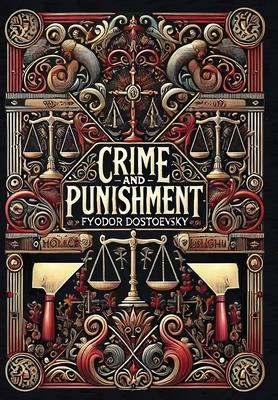A desperate young man walks the streets of St. Petersburg, convinced he can outsmart fate by committing the perfect crime. Raskolnikov believes he's above the law, but the moment he takes an axe in hand, his carefully constructed world begins to crumble. With every step, guilt tightens its grip, and a relentless detective circles closer. As paranoia sets in, Raskolnikov faces a terrifying truth: escaping the law may be possible, but escaping his own mind is another matter.
Crime and Punishment stands as one of the most influential works in world literature, exploring deep psychological and philosophical themes that continue to resonate today. Written during a time of social unrest in 19th-century Russia, Dostoevsky's novel challenged readers to confront complex questions of morality, justice, and the human conscience. The novel pioneered the exploration of the criminal mind, influencing not only literature but also fields like psychology and criminology. Its portrayal of inner turmoil and existential struggle helped shape modern thought, making it a timeless study of guilt, redemption, and the human condition.
